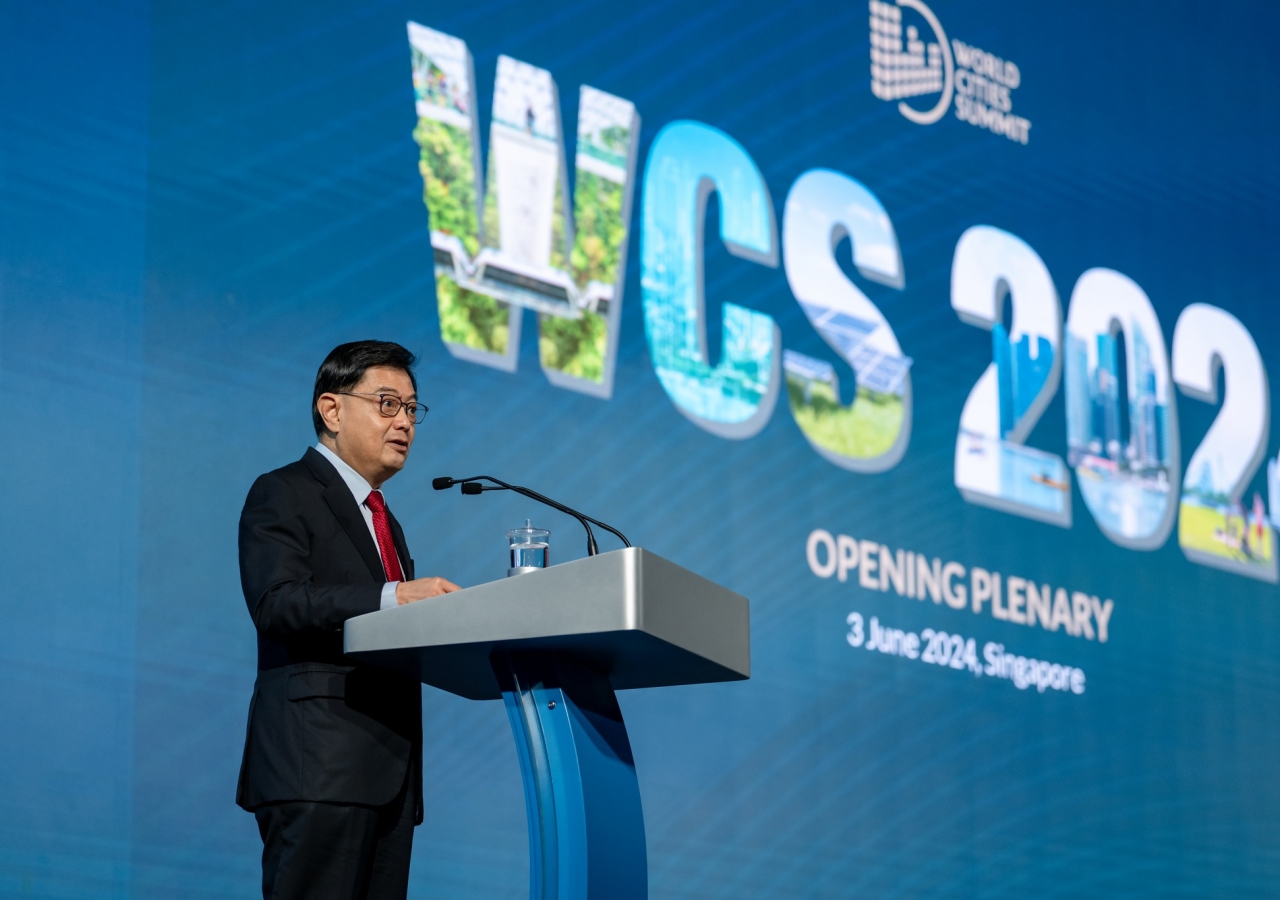The World Cities Summit (WCS) 2024, held from 2-4 June, attracted around 3,500 delegates and trade visitors from nearly 100 cities. Aga Khan Trust for Culture was honoured as a strategic partner. Themed "Liveable and Sustainable Cities: Rejuvenate, Reinvent, Reimagine," the event featured over 40 exhibitors showcasing urban solutions through booths and concept pitches. Key themes included innovation as a driver for solving urban challenges, the importance of international collaboration, and the necessity of partnerships between citizens and governments. The summit facilitated significant networking, resulting in the signing of 8 Memoranda of Understanding (MOUs) and agreements to foster new alliances and strategic partnerships between the public and private sectors.
Minister Desmond Lee inaugurated the World Cities Summit (WCS) 2024, welcoming mayors and city leaders from 96 cities. This 9th edition, themed "Liveable and Sustainable Cities: Rejuvenate, Reinvent, Reimagine," builds on discussions from the 2022 summit about urban resilience post-COVID-19. The summit addresses emerging challenges like geopolitical tensions, urbanization, and climate change. Deputy Prime Minister Heng Swee Keat will highlight global urban trends and guiding principles. Plenary sessions and thematic tracks will cover cities for people, resilient cities, smart cities, sustainable financing, and future cities. Minister Lee announced the updated Singapore Liveability Framework, reflecting evolving perceptions of urban liveability, and introduced the City Network for the Lee Kuan Yew World City Prize, fostering collaboration among global urban leaders. The summit aims to facilitate international dialogue, partnerships, and knowledge sharing to create sustainable and inclusive urban environments.
Senior Minister of State Sim Ann delivered the opening address at the World Cities Summit 2024, emphasizing the need for cities to continuously adapt and improve. Highlighting the shift from traditional zoning to mixed-use developments and pedestrian-friendly infrastructure, she stressed the importance of accommodating ageing populations and tackling climate change. Initiatives like Age Well SG and Community Care Apartments aim to support seniors in Singapore, while green infrastructure projects such as the Rail Corridor enhance public spaces. Emphasizing collaboration between government, communities, and private organizations, she called for a shared commitment to creating resilient and sustainable future cities.














